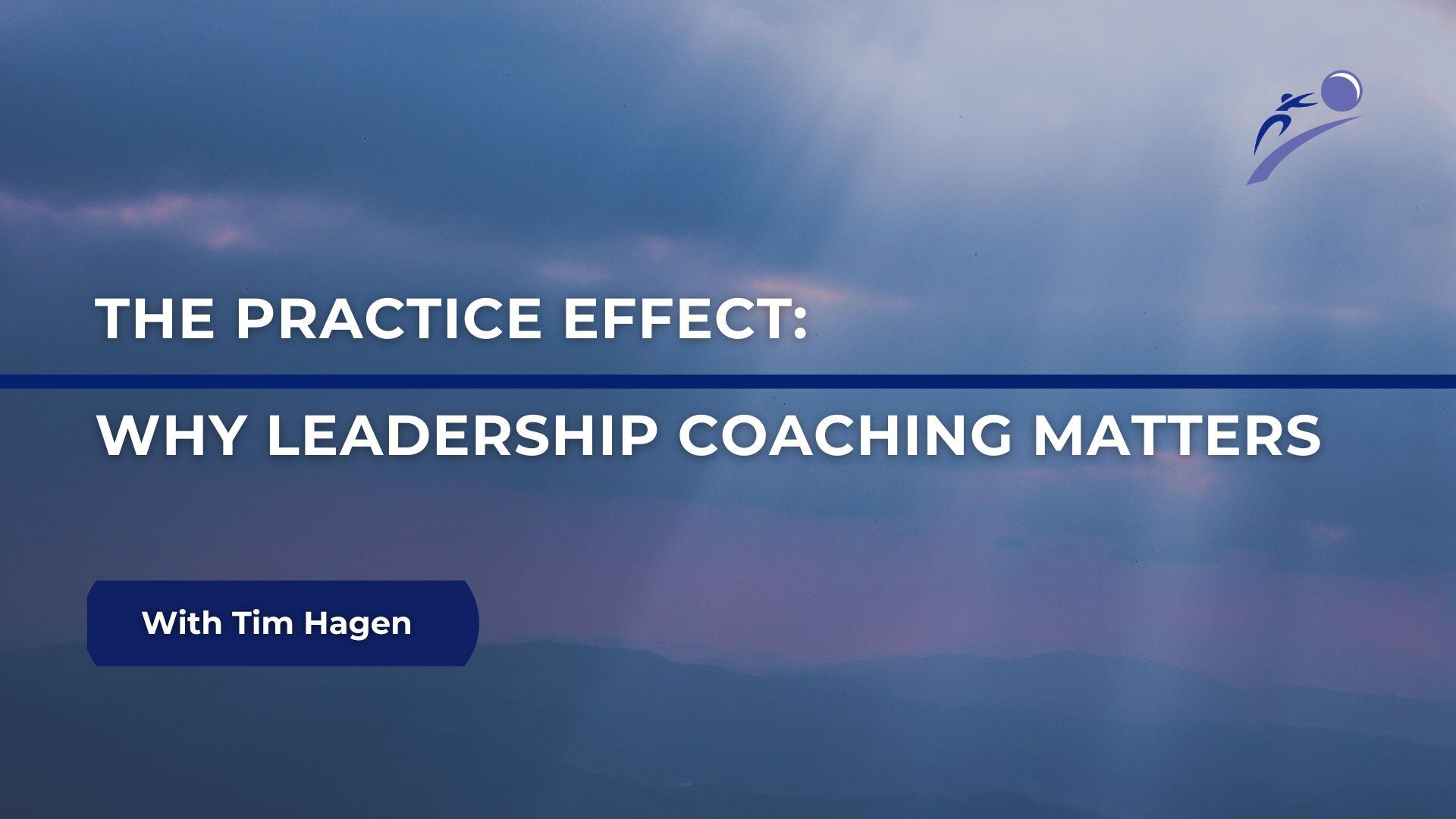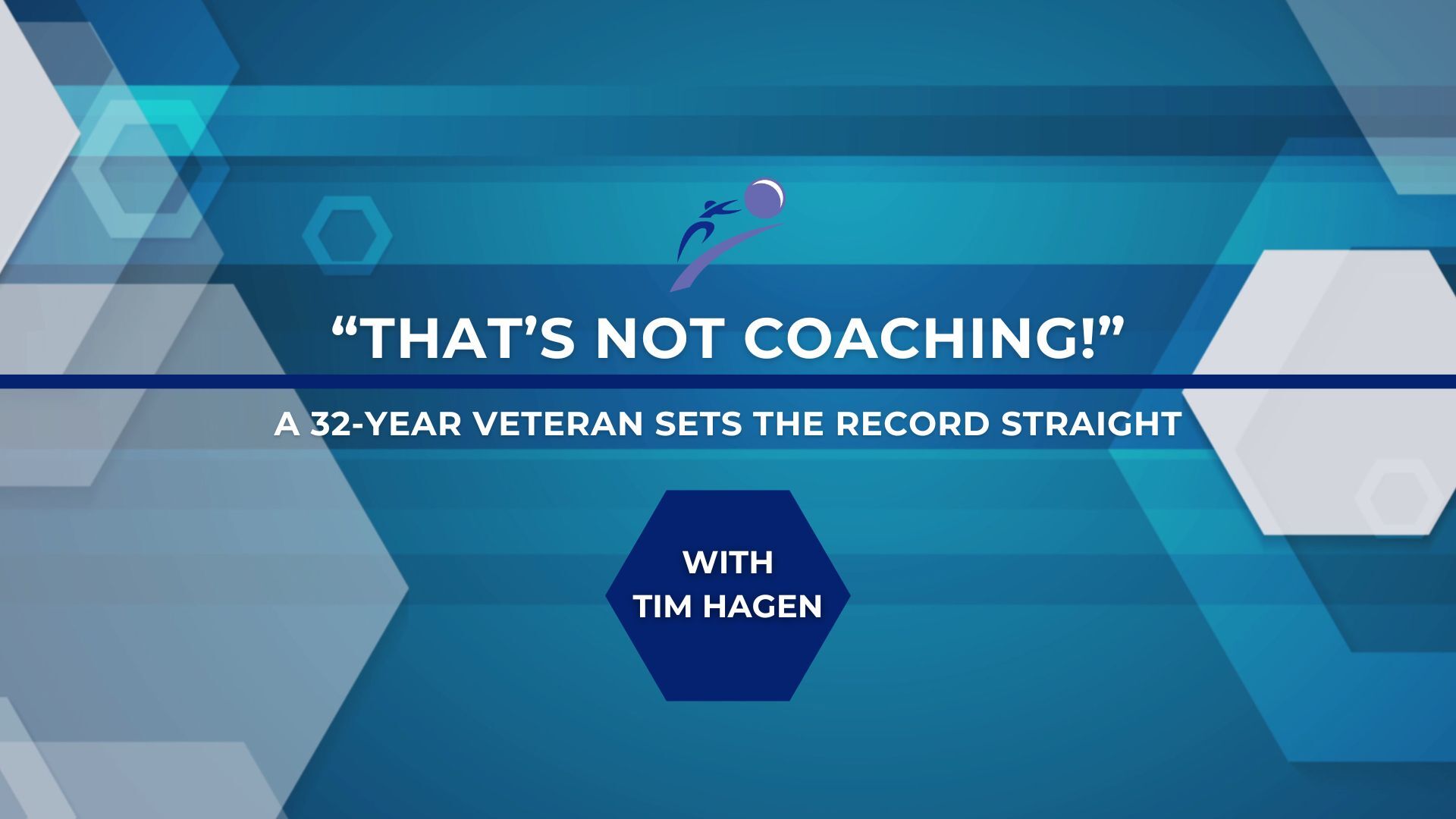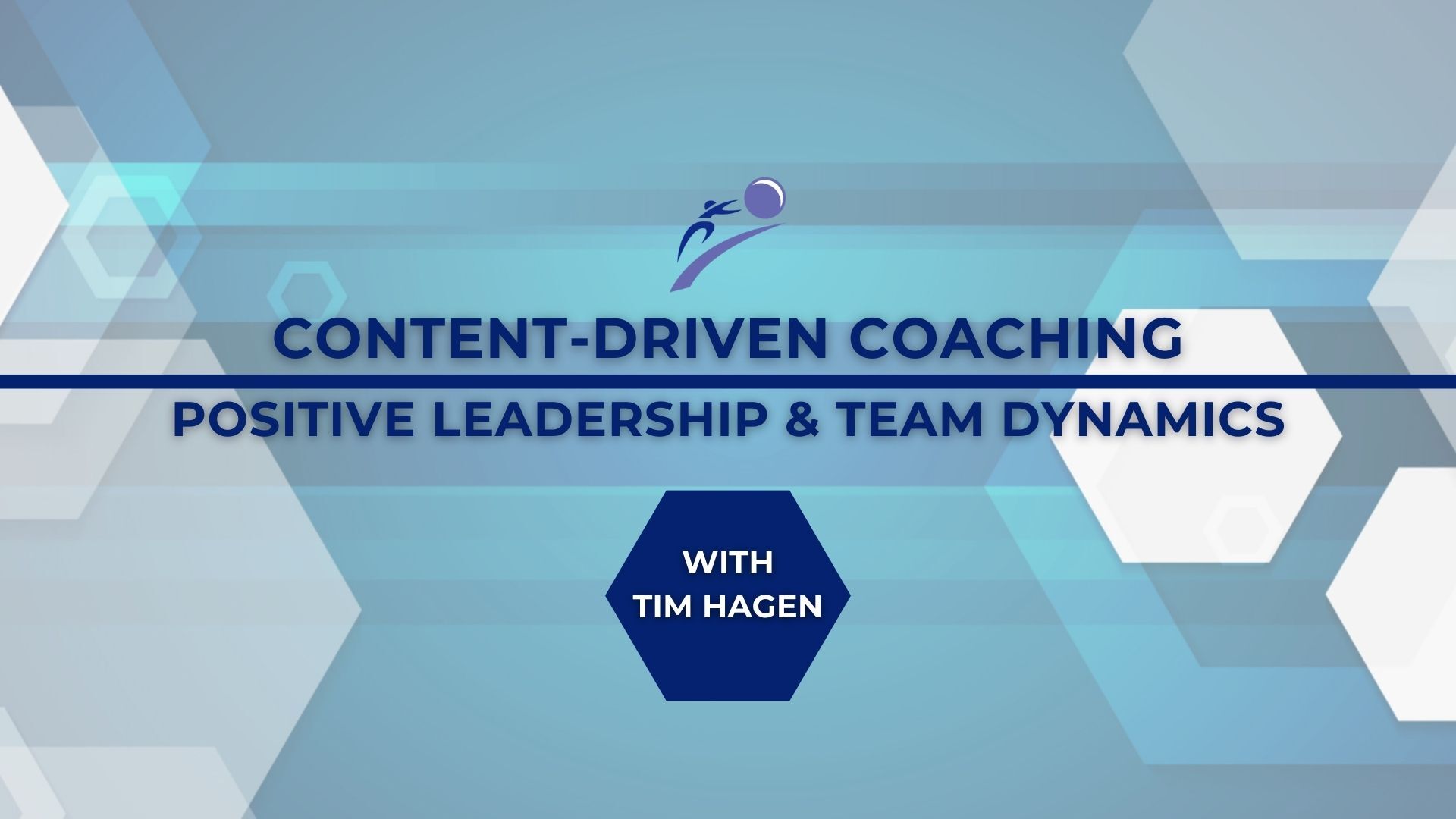The Practice Effect: Why Leadership Coaching Matters
After 30+ years of teaching leaders how to coach, I still get the question a lot:
What's the purpose of coaching? Why do our leaders need to coach?
Yes, it can improve your culture, it helps leaders, it helps employees, all the usual responses you'd expect. The number one objection we receive is "I don't have time." Because everyone is really busy. I get it. Our team is really busy, too. Yet coaching at it's most fundamental level is best illustrated with this sports analogy.
If you have kids in sports, would you honestly go up to your kid's coach and say, "My kids don't have time to practice or learn what you're teaching them. They will only show up for games. They just want to come and play."
The immediate reaction of someone hearing that will be, "Sports is different than the workplace." Actually, this goes to the basic fundamentals of how people improve.
First, you need knowledge. How do I make a good decision? How do I handle a conversation of conflict?
Then we need to practice it.
Do we honestly think somebody who practices conversations of conflict will be less likely or less skilled than someone who never practices those conversations?
The other day I had a leader ask me about decision-making. They had an employee who just wouldn't ever pull the lever on making a choice. They always went through the leader and have them make the decisions. I replied with a simple question: "Do you?"
He admitted he did. That means that manager had to own it. If he really wanted that employee to start making their own decisions, he needed to empower them to do so.
How do you facilitate practice around decision-making? I offered a suggestion of giving the employee a weekly case study to get insight into their critical thinking skills. That would help jumpstart the process of coaching this person to improve their abilities.
Decision-making is terrifying to people. What if I make the wrong decision?
We all know there's no guarantee of the right decision every time. Yet if you don't practice it, you won't do it. If you're not skilled or confident, you probably will find a way to transfer it to somebody else like this leader.
If you have a team member who has to give a presentation—and oh, by the way, the CEO is going to be in attendance—do we honestly think somebody is going to show up that day, not write out an outline, not practice, not know what they're going to talk about, and just get up there and wing it? Of course not.
When we think about coaching at its most fundamental level, we also have to be very conscientious of one major fact. Coaching is communication. If coaching is communication, if leaders are already talking to their employees, they're communicating.
Embed coaching.
I hear it all the time. "I have a weekly check-in with my people." Sure, check-ins sound wonderful: warm, friendly, non-intimidating, etc. There's nothing wrong with a check-in, yet a check-in is not coaching. Check-ins usually involve an agenda or checklist of things that need to be done or haven't been done. That is not coaching.
Coaching is about increasing someone's knowledge. It's about facilitating practice so they improve their skills, and using positive reinforcement to build confidence. What's the end result to that? Talent development, talent retention, easier to recruit to the organization.
Now, before anyone says that coaching is responsibility of the training department, first, ask yourself this question: Should the training department do the end of the year review, not you as the employee's leader? No. The employee deserves that important moment with you, their leader.
The number one reason people say they don't want to coach is they don't have time. Yet the top reason people don't actually coach is because they don't know how to do it. They don't know what to say. They will come up with every reason they can think of not to coach.
I recently had a vice president of a wealth management company say to me, "This is really simple stuff you teach." In all honesty, we hadn't gotten to the advanced stuff. I replied "True, it is simple stuff. You want to practice?" He immediately scowled and asked why.
I love to practice, and the reason I like practicing is it gives me insight to teach things and where people can improve, including me.
I asked if he was comfortable practicing with me right then. He said I wasn't giving him much time to prepare. To which I replied with one simple question:
When an employee knocks on your door, do you tell them to go away because you want more time to prepare?
Coaching is a skill. Fundamentally, if we know what to do, we have knowledge. If we have skill because we practiced it, we will become more confident people. It's that simple.
I remember when I was coaching my son in a community basketball league where the kids were eight or nine years old, and one of the dads was so offensive toward his son. He would scream at the kid when he missed free throws and really get worked up. This wasn't even a competitive league, just a rec league. After the game, I pulled the dad aside and said, "He's eight. He missed a free throw and you screamed when he air balled it. What do you think is going through his mind?" The dad replied he didn't care; the kid had to learn. I kindly asked him to do me a favor and I handed him a basketball. He followed me to the free throw line and asked him to stay right on the line. Then I turned around to the few parents still in the gym and I announced, "Bob's going to show us how to shoot a free throw." (No, Bob isn't his real name). I turned back to Bob and said, "Go ahead, everybody's watching you. Don't miss. Or I'll yell at you, just like you yelled at your son." This is where I flipped the script and put him on the big stage, so he could see the other perspective.
This man was so red, he dropped the ball, walked out of the gym, and never came back again. I'll never forget that. The interesting thing was this kid started to become a pretty good ball player.
That was a big stage. If you don't practice at that, the stage gets really big and intimidating.
Coaching is a stage. It's a stage we're already on. We're already having private one-on-ones, those end-of-the-year reviews, etc. If you are already having those weekly, bi-weekly, and quarterly meetings with them, and the end-of-the-year review came, wouldn't the end of the year review go better, versus than not having any of those meetings? Those meetings give us better insight to what their performance has been like. We will have learned what their likes and dislikes are. It gives us a chance to ask if their expectations are being met or not. Wouldn't the employee benefit? Wouldn't that endeavor become so much easier?
Coaching is not an "in addition to" thing. Coaching is an element of what we already do—communicate.
Check out AI Coaching Partners from Progress Coaching.
Take your Free Assessment here, and find out how you can benefit from AI Coaching Partners from Progress Coaching: Team 10 Assessment https://form.jotform.com/243373172581053 For more information, visit ProgressCoachingLeader.com




